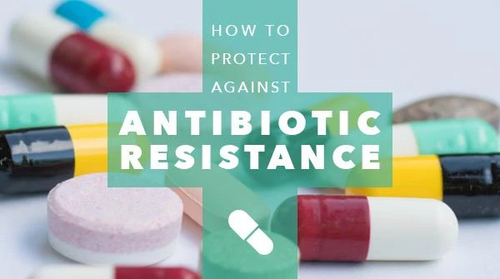Today, many non-scientists, especially those concerned about their well-being, are aware of these tiny organisms. What’s more, we now realise that we “have distinct microbial communities throughout our entire bodies,” says Jessica Finlay, PhD, co-author (with her father, microbiologist B. Brett Finlay, PhD) of The Whole-Body Microbiome (The Experiment).
There are ways to show your microbiome some love. Jessica Finlay recommends regular exercise and eating “a balanced diet filled with fibre (such as fruits, nuts, vegetables, whole grains and berries), fermented foods, and limited meat and refined sugars.”
There is still so much scientists need to learn about our diminutive passengers. “One important area of research moving forward is figuring out specific microbial genes and mechanisms responsible for particular effects in and on our bodies,” says Jessica Finlay. “We need more studies and data.”
Fortunately, many ongoing studies are revealing how extensive the microbiome’s effects really are.
Digestive Well-Being
The best-studied aspect of microbiome health is how these organisms work with the cells that line the GI tract. This interplay is crucial for two reasons: One, “the majority of the food we eat simply cannot be broken down without microbes,” as the Finlays put it, and two, probiotic microbes can crowd out disease-causing pathogenic types.†
Drugs besides antibiotics can disrupt the intestinal microbiome. Chemotherapy agents, for instance, have been found to affect the kinds of organisms that predominate in the gut; this may explain why a probiotic microbe called C. butyricum was able to help alleviate chemo-related diarrhoea in one study (Oncology Letters 1/19).†
The Finlays say that helpful organisms also interact with the mucus that lines the GI tract; a thick layer has been linked to better digestive health. On the other hand, an unhealthy gut with a thin mucus layer may become “leaky” and let unwanted substances into the bloodstream, which can set the stage for inflammation.
Immunity and Inflammation
In fact, the link between the microbiome and inflammation caused by a leaky gut is only one microbial effect on immunity.
“In our first few months, contact with our mother’s microbes shapes our immune system, ultimately determining whether allergies, asthma and eczema may arise years later,” write the Finlays. “We are only beginning to understand which microbes are needed for particular immune system functions.”
Allergy rates—including those for food allergies and such skin reactions as allergic dermatitis—are on the rise.
The problem appears to be associated with a drop in microbial diversity that occurred as more people moved from farms to cities, which has “led to decreased contact with certain microbes that are essential to immune system development,” according to the Finlays.
One of the most promising avenues of research is on how the microbiome modification may affect allergic responses.
A University of Texas study team noted in the journal Nutrients that “microbial modification by probiotics may improve gastrointestinal symptoms and multi-organ inflammation in rheumatoid arthritis, ulcerative colitis and multiple sclerosis”—conditions related to immune dysfunction.†
Weight Regulation
Gut microbes appear to influence body weight. This linkage starts early; according to a study in the journal mBio, the composition of a child’s microbiome at age two is associated with body mass at age 12.
There are several patterns in which body fat is deposited, with abdominal obesity linked to a greater risk of metabolic disease.†Studies show that more than 58% of American adults have abdominal obesity.†
British researchers examined substances produced by gut microbes in 500 pairs of twins, some of whom had developed belly fat, and found that nearly 68% of gut activity was influenced by environmental factors instead of genetic influences (Nature Genetics 5/18).†
Abdominal obesity is a risk factor for type 2 diabetes, which makes the microbiome a research target for scientists looking to rein in this increasingly common disease.†
In one study, an Iranian research team divided 40 people with type 2 diabetes into two groups; one received a probiotic supplement while the other group got a placebo. After eight weeks, participants in the supplement group showed significant improvements in their fasting blood sugar and insulin resistance levels (Iranian Biomedical Journal 1/19).†
Neurological Function
Scientists have discovered that microbes in the intestines can “talk” to the brain through the gut-brain axis via the vagus nerve, which runs from the brain to the colon. Besides influencing this nerve directly, the gut microbiome can also make neurotransmitters and other substances that affect the brain.
This explains the microbiome’s role in mood disorders such as depression. Some studies have found that the gut microbes of people with depression include more inflammation-promoting species and few anti-inflammatory ones. What’s more, the Finlays point to research linking antibiotic usage, which is known to alter the microbiome, with an increased risk of depression.
The microbiome appears to influence the brain in other ways.†
For example, Mexican researchers found that giving middle-aged rats a probiotic species called E. faecium along with inulin, a fibre the microbe feeds on, resulted in better results on memory tests (Frontiers in Aging Neuroscience 12/18). Other studies have found that mice with brain damage similar to that seen in people with Alzheimer’s had different gut microbes than disease-free mice.†
Reproductive Wellness
We have long known about another microbial community outside of the intestines: the organisms that help determine vaginal health.
For years, researchers thought that this microbiome was dominated by species from the Lactobacillus family, which produces the acid environment that helps prevent infection. However, the Finlays say, we now know the vagina hosts “a complex ecosystem of more than 200 bacterial species.”
What’s more, disruptions in this microbiome can lead to more than just discomfort: According to a study in mBio, the makeup of a woman’s cervical biome has been linked to the presence of precancerous lesions. On a positive note, an Italian study team found that giving probiotics to women with recurrent urogenital infections seemed to help (Clinical Science 10/18).†
Probiotics also play a role in male reproductive health.
In a study using obese mice, European researchers found a link between probiotics supplementation and better sperm quality (PLOS ONE 10/17). In another PLOS ONE study, aging mice who consumed a species called L. reuteri showed more youthful serum testosterone levels. †
Far-Reaching Influences
It seems counterintuitive to think microbes would have anything to do with skeletal or heart health, but they do.
“Scientists are beginning to formally examine how the microbiome plays a role in osteoporosis,” say the Finlays. A study published in the American Journal of Pathology found that disruption of intestinal microbes by antibiotics led to increased activity of osteoclasts, the cells that trigger bone breakdown. And a Journal of Physiology study has found that age-related changes in the microbiome can lead to declining blood vessel health.†
One of the most potentially fruitful areas of microbiome research appears to be how these organisms are related to cancer in terms of both development and treatment.†
According to the Finlays, “An estimated 20% of all cancers are linked to microbial agents.” On the other hand, they say the microbiome may be a means to improve outcomes of immunotherapy, which uses the immune system itself to attack cancer. In one study presented to a meeting of the American Association for Cancer Research, a high-fibre diet in melanoma patients appeared to trigger a better response to treatment with the immunotherapy agent anti-PD-1.†
Picking a Probiotic
A healthy lifestyle—especially a healthy diet—is crucial for the well-being of your microbiome. To bolster those efforts, many people also take probiotic supplements.
A supplement should include multiple strains of microbes, including those with clinical backing, and in concentrations sufficient enough to be effective. It should also include prebiotics—special types of fibre that help feed the probiotic organisms.
What’s more, a high-quality line of probiotics will include formulations for the whole family, with strains tailored to the needs of men and women as well as children (who may take their probiotics more readily in flavoured chewable form).
It appears that the more science discovers about the microbiome, the more there is to know. But if there’s one thing we’ve learned for sure, it’s that the basic building blocks of a healthy lifestyle—proper diet and exercise—are as good for our microbes as they are for us.
†The information provided is not an endorsement of any product, and is intended for educational purposes only. NaturesPlus does not provide medical advice and does not offer diagnosis of any conditions. Current research on this topic is not conclusive and further research may be needed in order to prove the benefits described.
**These statements have not been evaluated by the Food and Drug Administration. This product is not intended to diagnose, treat, cure or prevent any disease.



